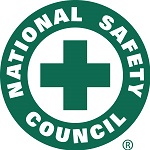Most of us first try skipping sleep in order to meet a school deadline. “Pulling an all-nighter” is a time-honored test of a teenager’s steely resolve to procrastinate on studying for a test, finishing a research paper or writing a lab report. Sometimes it works, sometimes it doesn’t. One thing for certain: a long nap ends up on the docket for the next day.
For adults in the workaday world, that’s generally not an option.
Barriers to Staying Alert at Work
Workplace nap rooms may be a boutique benefit at some companies, but the typical American worker is expected to be alert and productive for eight or more hours a day. Add up work hours, commuting, family interaction, chores, plus a little “me time,” and adequate sleep can fall to the bottom of the must-do list. We’re a fatigued nation – and it’s affecting our safety, productivity and decision-making ability on the job. According to a new report, 43 percent of Americans say they don’t get enough sleep to handle risks that can jeopardize their safety at work and while driving. The workplace itself can contribute to fatigue in the following ways:
· Shift work can mean working at night or rotating schedule frequently, making it difficult to keep a consistent sleep schedule
· Task type can affect fatigue, such as mentally demanding work, tedious or repetitive tasks, and too much time on one task
· Poor indoor air quality and lighting can add to fatigue
You may not have control over all these factors, but you can personally reduce fatigue in one simple way: getting adequate sleep.
Fatigue Is More Than Sleepiness
Some people think if they’re not sleepy, they’re not impaired. Fatigue is much more complex. It’s defined as a physical, mental or social impairment that includes tiredness, sleepiness, reduced energy and increased effort needed to perform tasks at a desired level. The Centers for Disease Control and Prevention recommend adults get seven to eight hours of sleep every night, but more than a third get less. These tips suggested by the National Sleep Foundation can help you increase your quality and quantity of sleep:
· Keep a regular schedule: Go to bed and wake up at the same time every day (even weekends)
· Keep your bedroom comfortable: Make it cool, dark and quiet, and ensure your mattress and pillows are supportive
· Create a sleep-promoting bedtime ritual: Turn off electronics and relax for an hour before bedtime
· Evaluate the effectiveness of napping: a 20-minute power nap can be re-energizing for some, and make it harder to fall asleep at night for others
Reducing fatigue, simply by getting an extra hour or two of sleep a day, can enrich your personal and professional lives. When you’re alert, mentally engaged and energetic, you’re able to work more safely and productively, and engage with others more meaningfully.


